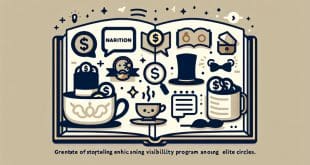In the intricate world of philanthropy, the power to sway a conversation, to articulate the value of a cause, and to anchor a negotiation towards a fruitful conclusion is a fine art. One does not merely ask for a grant; they must earn it through a dance of words, emotions, and strategic planning. This is the battleground where missions are funded and visions are given the wings to soar.
For professionals navigating the nonprofit sector, the stakes could not be higher. Every successful negotiation expands the horizon of what’s possible, transforming lives and communities. But how does one elevate their negotiation tactics from good to great? What separates a routine discussion from a game-changing dialogue?
Let us embark on an intellectual journey, dissecting the advanced negotiation strategies that are indispensable tools for any nonprofit professional. Here, we will dissect the anatomy of effective negotiation in the context of securing grants and donations, distilling wisdom from those who have walked the tightrope and emerged victorious.
Firstly, engaging potential funders is an art that involves not just a presentation of needs but an understanding of the funder’s goals and aspirations. Philanthropy is driven by a desire to impact change; aligning your organization’s objectives with the donor’s vision can create a powerful synergy. It’s about crafting a narrative that resonates with the donor’s values, ensuring that they see your cause as an extension of their philanthropic identity.
Secondly, the significance of persuasive communication cannot be overstated. This involves more than just the facts and figures; it’s about telling a compelling story. A well-crafted message taps into the emotions, evokes empathy, and paints a vivid portrait of the change that the funder’s contribution could manifest. Through a combination of authenticity and articulation, a persuasive negotiator can transcend transactional barriers to forge a meaningful connection with donors.
Drawing insights from veteran negotiators, we learn that preparation is the bedrock of negotiation. Understanding your funder’s history, interests, and giving patterns can give you an edge in conversations. Simultaneously, being acutely aware of your organization’s unique value proposition and the outcomes of your work can bolster your confidence and negotiation stance.
Real-world examples abound where strategic negotiation has led to significant boosts in funding. Take, for instance, a small community nonprofit that, through meticulous research and by appealing to a foundation’s community impact goals, secured a grant double what they initially hoped for. Or consider a research organization that leveraged its data outcomes to negotiate ongoing funding with a major donor, ensuring the sustainability of its programs.
However, even the best-laid strategies can encounter roadblocks. Common pitfalls in grant negotiation include failing to follow up effectively, overlooking the importance of building relationships beyond the negotiation table, and not customizing the approach for each donor. An understanding of these pitfalls and how to navigate them can be the difference between a missed opportunity and a partnership that flourishes.
Whether you are a seasoned nonprofit veteran or new to the field, it’s crucial to recognize that negotiation is not a one-off event but a continuous process that refines your organization’s trajectory. It demands an open mind, a willingness to learn, and an unwavering commitment to your cause.
As we conclude our exploration into the nuanced world of grant negotiation, let’s remember that at the core of every discussion, bid, and proposal is the potential for a brighter future. By mastering the art of negotiation, we don’t just secure funds—we secure hope, progress, and the promise of a better tomorrow for the communities we serve.
 Grants Club Community
Grants Club Community






